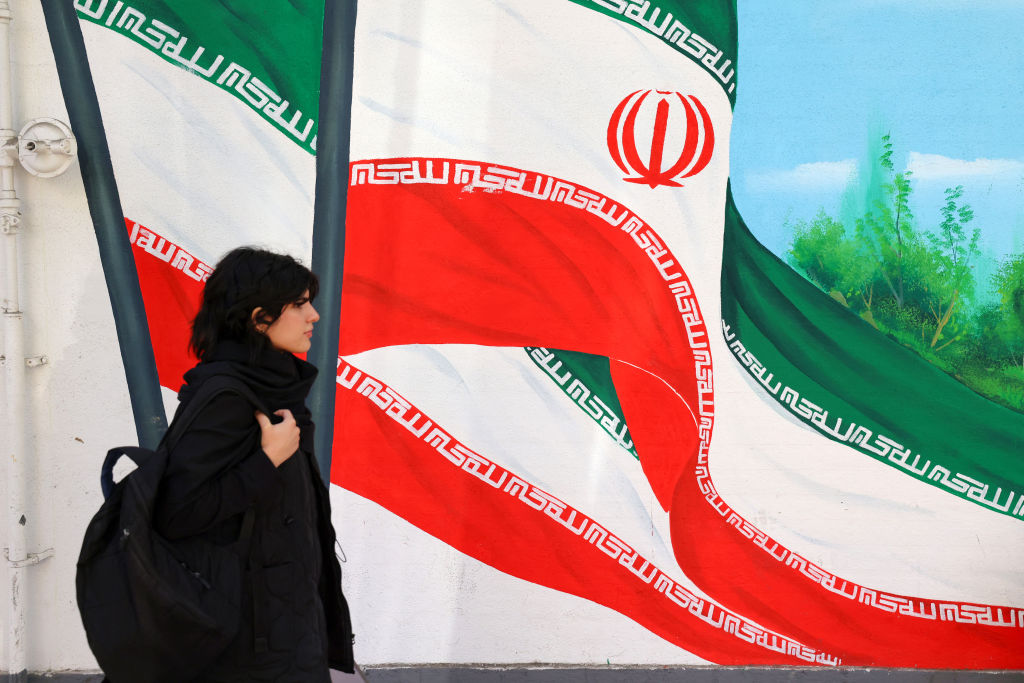Despite the unpredictability of our current world, people continue to make predictions about geopolitical matters of which they cannot know. One prediction currently being thrown around, spurred by the flurry of optimism following the ousting of Bashar al-Assad in Syria, is that of the imminent demise of the regime in Iran. Conservative MP Tom Tugendhat, speaking on the Conflicted podcast this week, declared that “the Iranian regime will collapse within a few years”, adding to a string of media commentary along similar lines.
The thinking here is that Hamas, Hezbollah, and Assad are the crucial dominoes whose fall will precipitate that of the mullahs in Tehran. With the regime naked and its imperial project on life support, the Iranian people will mobilise, and the faltering theocracy will crumble.
Perhaps. But such optimism seems premature at best. Recall the many similar predictions of the impending fall of authoritarian regimes in recent years which ultimately came to nothing. Mass anti-government protests in Belarus in 2020, Russia in 2021, and Iran itself in 2022 were all meant to herald the respective collapses of these regimes. Similarly, anticipation for the fall of Vladimir Putin followed the failed mutiny by Yevgeny Prigozhin in 2023, and likewise with Turkey’s Recep Tayyip Erdogan after the attempted coup against him in 2016. Contrary to the optimism that surrounded these events, they all turned out to have been aberrations to the continual hegemony of the countries’ rulers.
Assad is one of the exceptions to this misplaced optimism about the fate of despots. But even here, while those who were certain of his downfall back in 2011 can claim to have been wrong on timing but right on the basic facts, this was only because of a combination of entirely unforeseen circumstances. Namely: the wars in Ukraine and Lebanon, which left Assad’s allies weakened and distracted, meaning no one was around to pick up the phone when he called for help.
The Iranian regime may be weak abroad and despised at home. But in the absence of any organised domestic opposition, or an inspiring figure to mobilise one, it still shows no sign of falling. And in the unlikely event of such a movement emerging in the next couple of years, the mullahs wouldn’t go out with a whimper but would instead weaponise the full might of the state to crush any threat to their rule.
It is more likely that a humbled Iranian regime will stumble on, lick its wounds, and try to rebuild its battered empire. Alongside a crippled but intact Hezbollah, its remaining assets are the Houthis in Yemen and the Popular Mobilisation Forces (PMF) in Iraq, a loose coalition of mainly-Shi’ite militias. None of these groups are currently able to seriously threaten Israel. However, the Houthis have set a dangerous precedent in their ability to disrupt commercial shipping in the Red Sea at a time of Iran’s choosing. Iran’s colonisation of Iraq via proxy is currently impeded by the presence of American troops in the country. However, a full or partial withdrawal of those troops in the near-future could give Iran a freer hand in one of the world’s most oil-rich nations.
It shouldn’t be too outlandish to guess that containing Iran will be considerably easier after its recent setbacks. New President Masoud Pezeshkian has made what passes in Iran for conciliatory comments about relations with America. It is possible that a limited deal could be reached with Washington regarding sanctions relief and a verifiable halt to its nuclear ambitions. Otherwise, a confident Israel and a hawkish US administration could together deter a nuclear breakout in Iran for now. But a weakened Tehran may be more unpredictable, and if it is not properly dealt with, last year’s turmoil in the Middle East could turn out to be a prelude to a more catastrophic war.










Join the discussion
Join like minded readers that support our journalism by becoming a paid subscriber
To join the discussion in the comments, become a paid subscriber.
Join like minded readers that support our journalism, read unlimited articles and enjoy other subscriber-only benefits.
Subscribe